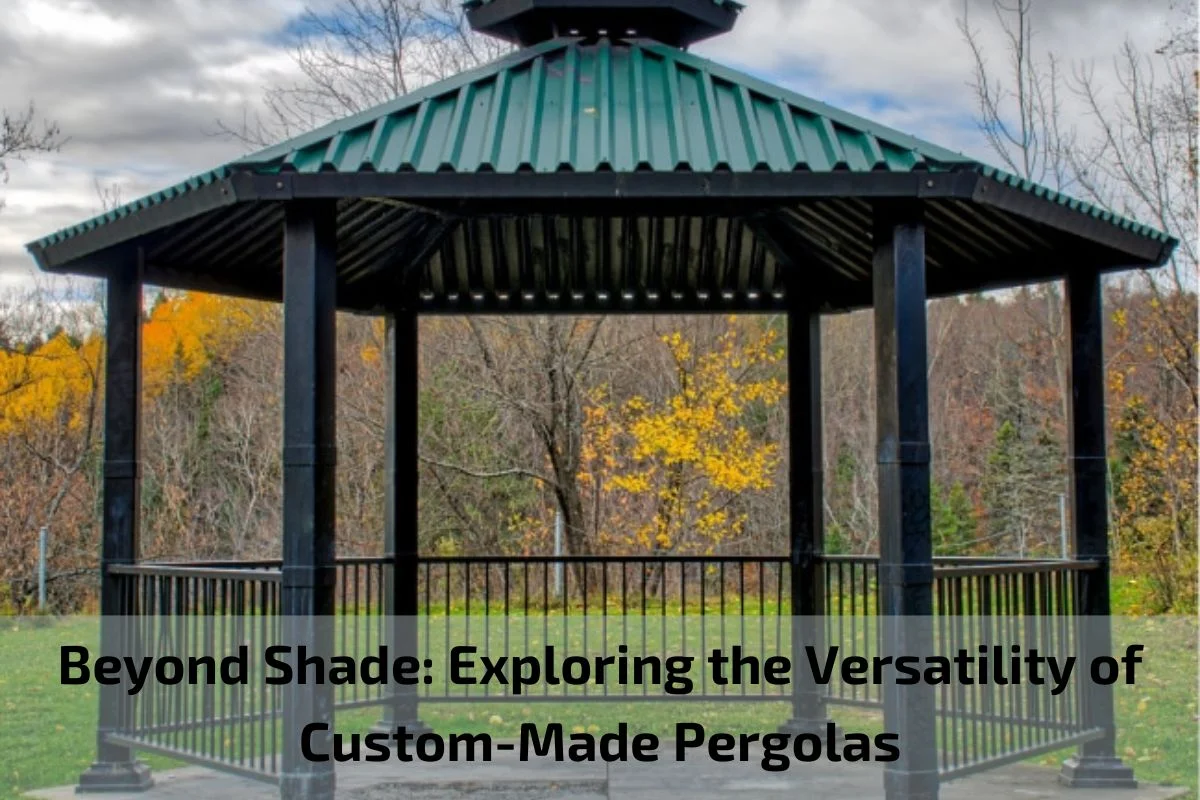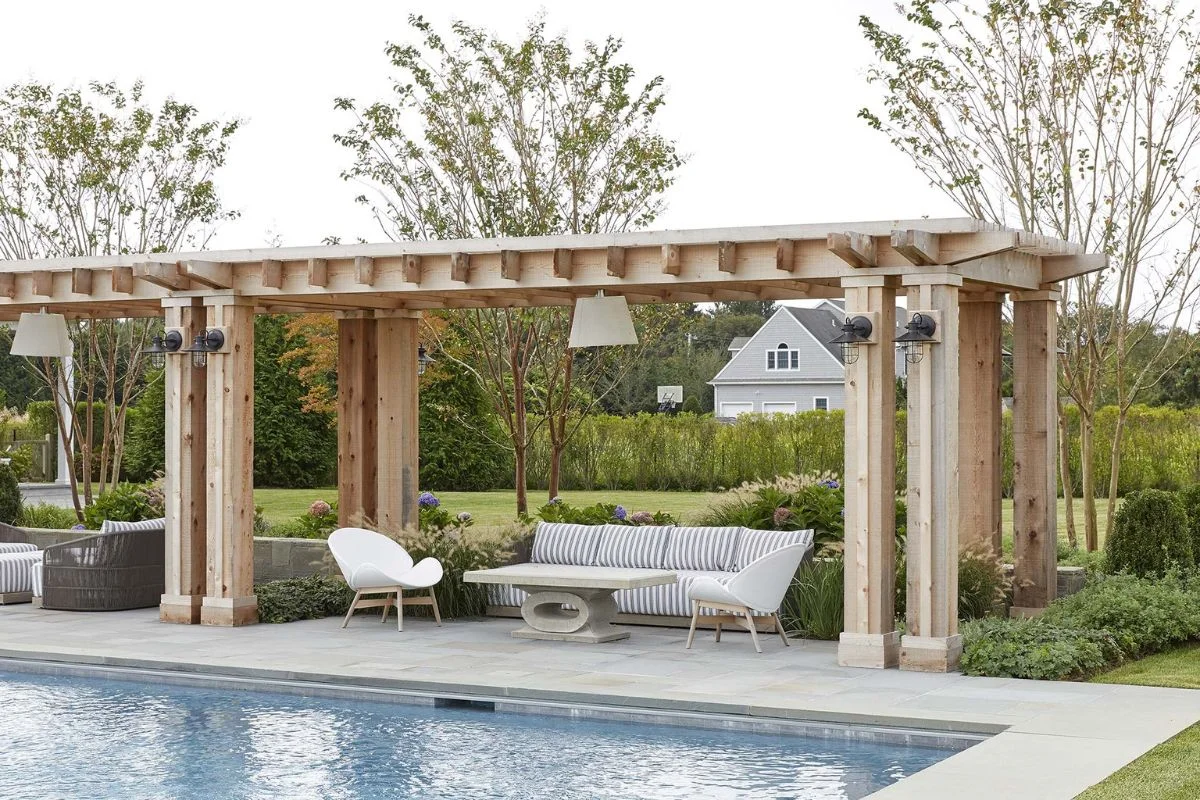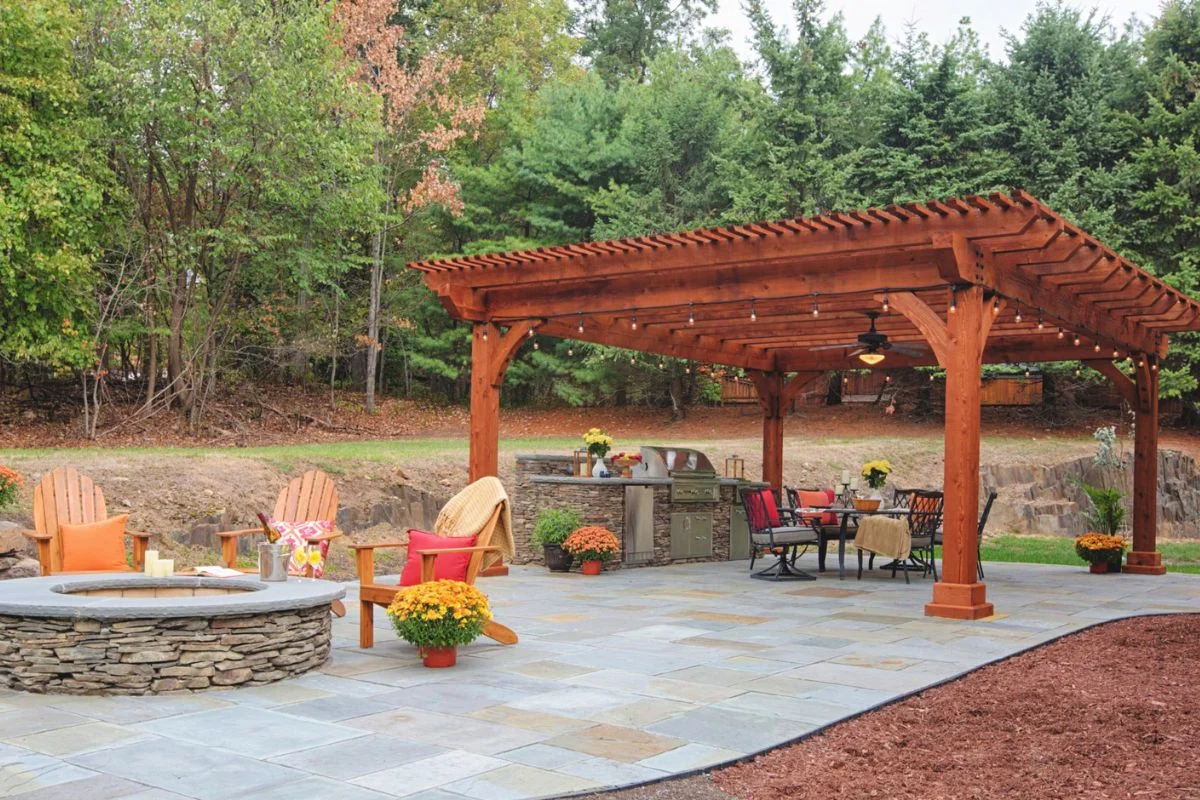Beyond Shade: Exploring the Versatility of Custom-Made Pergolas
In the realm of outdoor living, few features possess the transformative power and timeless allure of custom-made pergolas. While these elegant structures are renowned for providing shade and shelter, their versatility extends far beyond mere protection from the elements. From intimate gatherings under starlit skies to lavish alfresco dining experiences, custom pergolas serve as the architectural canvas upon which outdoor dreams come to life.
In this exploration, we embark on a journey beyond mere shade, delving into the myriad ways in which custom-made pergolas elevate outdoor spaces to new heights of beauty, functionality, and personalization. Join us as we uncover the untold stories of creativity, craftsmanship, and ingenuity that define the versatile world of custom pergolas, where each structure is a unique expression of style, purpose, and lifestyle.
Definition and purpose of pergolas
A pergola is an outdoor structure characterized by columns that support a roof consisting of open, cross-beamed rafters. It typically lacks solid walls or a complete roof, allowing for partial shade and ventilation. The primary purpose of a pergola is to provide an elegant and functional outdoor space that enhances the beauty of the surrounding landscape while offering shelter from the sun and elements. Pergolas are often used to create inviting areas for outdoor dining, relaxation, and social gatherings, serving as focal points in gardens, patios, and backyard landscapes. Additionally, they can be adorned with climbing plants, vines, or hanging flora to further enhance their aesthetic appeal and provide natural shade and privacy. Overall, pergolas add architectural interest, charm, and versatility to outdoor living spaces, blending functionality with timeless beauty.
 Practical Benefits of Custom Pergolas
Practical Benefits of Custom Pergolas
Custom pergolas offer a range of practical benefits that contribute to the enhancement of outdoor living spaces. Here are some key advantages:
Shade and Shelter: One of the primary benefits of custom pergolas is their ability to provide shade and shelter from the sun’s harsh rays. By strategically positioning the rafters and beams, custom pergolas can create shaded areas where individuals can comfortably relax, dine, or entertain outdoors, even during the hottest hours of the day.
Enhanced Outdoor Living: Custom pergolas extend the usable space of outdoor areas, effectively transforming them into functional extensions of the home. They provide designated areas for outdoor activities such as dining, lounging, reading, or hosting gatherings, allowing homeowners to make the most of their outdoor environments throughout the year.
Architectural Appeal: Custom pergolas serve as architectural focal points that add character and charm to outdoor landscapes. Their elegant designs and customizable features complement various architectural styles, enhancing the overall aesthetic appeal of the property. Whether contemporary, traditional, or eclectic, custom pergolas seamlessly integrate with existing outdoor structures and landscaping elements.
Increased Property Value: The addition of a custom pergola can increase the market value of a property by enhancing its curb appeal and functionality. Potential buyers are often drawn to homes with well-designed outdoor living spaces, including pergolas, which can differentiate a property in a competitive real estate market and contribute to a higher resale value.
Versatility in Design: Custom pergolas offer endless design possibilities, allowing homeowners to tailor the structure to their specific preferences, lifestyle, and outdoor space requirements. From choosing the size, shape, and material to incorporating custom features such as lighting, retractable shades, or built-in seating, custom pergolas can be personalized to meet the unique needs of each homeowner.
Privacy and Seclusion: Depending on the design and placement, custom pergolas can provide a sense of privacy and seclusion within outdoor areas. By strategically positioning the structure and adding optional privacy screens or curtains, homeowners can create intimate retreats where they can unwind and enjoy moments of solitude amidst the beauty of nature.
Low Maintenance: Custom pergolas made from durable materials such as aluminum, vinyl, or composite wood require minimal maintenance compared to traditional wood structures. They are resistant to rot, decay, and insect damage, making them long-lasting investments that require only occasional cleaning and upkeep to maintain their beauty and functionality.
Design Considerations for Custom Pergolas
When designing a custom pergola for your outdoor space, several key considerations can help ensure that the structure meets your aesthetic preferences, functional needs, and practical requirements. Here are some important design considerations for custom pergolas:
Architectural Style: Consider the architectural style of your home and outdoor landscape when designing your custom pergola. Whether your home has a modern, traditional, or transitional design, the pergola should complement the existing aesthetic seamlessly. Choose elements such as column styles, roof designs, and decorative details that harmonize with the overall architecture.
Size and Scale: Determine the appropriate size and scale of the pergola based on the dimensions of your outdoor space and the intended use of the structure. Consider factors such as available space, the desired seating capacity, and how the pergola will fit within the overall layout of your outdoor area. Avoid overbuilding or under-sizing the pergola relative to the surrounding environment.
Material Selection: Selecting the right materials for your custom pergola is crucial for both aesthetic appeal and durability. Common materials for pergolas include wood, aluminum, vinyl, and composite materials. Consider factors such as maintenance requirements, weather resistance, and longevity when choosing the material that best suits your needs and preferences.
Roof Design: Decide on the roof design for your custom pergola, taking into account factors such as sun exposure, ventilation, and rain protection. Options for roof designs include open rafters, lattice panels, solid panels, and retractable canopies. Choose a roof design that provides the desired level of shade while allowing for adequate airflow and natural light.
Custom Features: Incorporate custom features into your pergola design to enhance its functionality and visual appeal. Examples of custom features include built-in lighting, ceiling fans, retractable shades, privacy screens, and decorative elements such as ornamental brackets or lattice work. These features can elevate the aesthetics of the pergola and create a more comfortable outdoor living space.
Landscaping Integration: Consider how the pergola will integrate with the surrounding landscaping elements, such as gardens, pathways, and outdoor furniture. Choose plantings that complement the pergola design and provide additional shade, privacy, or visual interest. Coordinate the placement of the pergola with other outdoor features to create a cohesive and harmonious outdoor environment.
Local Building Codes and Regulations: Before finalizing your pergola design, be sure to check local building codes and regulations regarding permits, setbacks, and structural requirements. Ensure that your custom pergola design complies with all relevant regulations to avoid potential issues during the construction process.
Maintenance and Care Tips
Proper maintenance and care are essential for ensuring that your custom pergola remains in top condition and continues to enhance your outdoor space for years to come. Here are some maintenance and care tips to help you keep your pergola looking beautiful and functional:
Regular Cleaning: Regularly clean your pergola to remove dirt, dust, pollen, and debris that can accumulate over time. Use a gentle cleaning solution, such as mild soap and water, and a soft brush or cloth to scrub the surfaces of the pergola, including the columns, beams, and rafters. Rinse thoroughly with water afterward to remove any soap residue.
Inspect for Damage: Periodically inspect your pergola for any signs of damage, such as cracks, warping, or loose hardware. Pay special attention to areas that are exposed to the elements, such as joints and connections. Promptly repair any damage to prevent further deterioration and ensure the structural integrity of the pergola.
Sealing and Staining: If your pergola is made from wood, consider sealing or staining it to protect the wood from moisture, UV rays, and other environmental factors. Apply a quality wood sealant or stain according to the manufacturer’s instructions to help prolong the life of the wood and maintain its appearance.
Trim Vegetation: If your pergola is adorned with climbing plants or vines, regularly trim and prune the vegetation to prevent it from overgrowing and causing damage to the structure. Trim away any branches or tendrils that come into contact with the pergola to maintain airflow and prevent moisture buildup, which can lead to rot and decay.
Inspect Hardware: Periodically check the hardware, such as screws, bolts, and brackets, to ensure that they are tight and secure. Tighten any loose hardware as needed to prevent components from coming loose or falling off. Replace any damaged or corroded hardware to maintain the structural integrity of the pergola.
Seasonal Maintenance: Perform seasonal maintenance tasks to prepare your pergola for changing weather conditions. In the spring, inspect the pergola for any winter damage and clean it thoroughly to remove debris. In the fall, prepare the pergola for colder weather by storing or covering any outdoor furniture and accessories to protect them from the elements.
Professional Inspection: Consider hiring a professional inspector to assess your pergola periodically and identify any potential issues that may require attention. A professional inspection can help detect problems early on and prevent costly repairs down the line, ensuring the long-term durability and safety of your pergola.
Conclusion
In conclusion, maintaining and caring for your custom pergola is essential to preserving its beauty, functionality, and structural integrity over time. By following a regular maintenance routine, including cleaning, inspection, and repair, you can ensure that your pergola continues to enhance your outdoor space for years to come.


 Practical Benefits of Custom Pergolas
Practical Benefits of Custom Pergolas


0 comments